Ugandan-born and American-based Author & TED Global Fellow, Yasin Kakande is not new to confronting complex world issues, even at personal expense. His previous non-fiction, The Ambitious Struggle unsettled the authorities in Dubai so much that he had to be deported. He has released another gadfly, ‘A Murder of Hate,’ a gripping fictional crime thriller with a real-life undertone. Excerpt…
I commend your storytelling exploit in your latest work ‘A Murder of Hate.’ It’s quite gripping. What inspired the storyline?
I’m from Uganda, and even though I’ve spent most of my professional life outside the country, I still feel a deep sense of homesickness and hope that one day I can return for good. Lately, I’ve been reflecting on the stories and policies that push me and other Africans away from home. While poor governance by our leaders is a significant factor, I believe there’s another, often overlooked story—one of imperialism and the continued plunder of our continent.
It’s as if the entire continent has been mortgaged to foreign corporations, leaving us with little to truly call our own, whether we stay or leave. This thought has weighed heavily on me, and I’ve decided to channel it into a story that explores how this modern-day imperialism manifests. I also want to shed light on how the very leaders who help facilitate this plunder are often celebrated in the West as reformers and good diplomats.
Apart from this latest work a fictional crime thriller, you are the author of four non-fiction books I know of. Why did you choose this route in this latest work?
I chose to write fiction this time because it empowers me in ways that non-fiction doesn’t. It gives me the freedom to fully unleash my imagination without the need to support my work with sources and bibliographies. It also allows me to not just inform the public but to entertain them as well.
Initially, my first drafts didn’t include any sex scenes. However, when I received feedback from some of my early readers, one suggested that I should explore including sex because, as they put it, “in real life, people have sex.” My first reaction was concern—how would my conservative Muslim family and friends react to this? I even discussed it with the reader who made the suggestion, asking if she realized I was Muslim. Her response was, “It depends on who you’re writing for. If it’s for your conservative family, then disregard my suggestion. But if it’s for a broader audience, don’t shy away from including sex. After all, even religious scriptures contain stories as explicit as, if not more than what modern conservatives admit.” She reminded me of the story of Joseph, which I then revisited in the Quran. As I read it, ideas began to flow, and I started noting them down.
Even then, I wasn’t fully convinced about getting too explicit, so I consulted a Muslim cleric friend whom I respect greatly and knew would be open to discussing this. He pointed out that there are actually more references to sex in the Quran and Hadith traditions than just the story of Joseph. He advised me to clearly define my audience and ensure that the content wouldn’t reach unintended audiences, like children. That’s when I knew I needed to include a content warning in the book.
I started brainstorming and writing down ideas for the sex scenes. When I completed the second draft with these scenes included, I shared it with the same reader who had originally suggested it. Her response this time was, “Oh my God… Yasin, this is more than I had in mind when I proposed adding sex. This reads as very graphic. Have you made peace with your conservative Muslim family on this?”
What specific goals did you have in mind by writing A Murder of Hate?
I wanted to reach a wider readership, both in Africa and globally, and to explore themes like imperialism from an African perspective. So many of the injustices that have happened to us as Africans—whether it’s slavery, colonialism, or imperialism—have been told primarily through a Western lens. The mainstream narrative often centers on Western viewpoints, as if we Africans are simply waiting for white saviors to occasionally acknowledge and condemn these practices. It’s crucial for us to tell our own stories, offering perspectives that are rooted in our experiences and history.
You’ve been a seasoned non-fiction writer. How did you realize that you could write fiction?
My first venture into fiction began during my MFA in Creative Writing (Non-Fiction) at Emerson College in Boston. While scanning the faculty, I discovered that Novuyo Rosa Tshuma, a renowned Zimbabwean author whose debut novel I had admired for its gripping portrayal of post-independence Zimbabwe, was teaching at the school. I was eager to take a class with her, but she only taught fiction workshops. After consulting with my advisors, I found out that I could take a fiction workshop as part of my Non-Fiction degree, so I signed up for her class.
Initially, I didn’t have any fiction samples, so I had to create one from scratch. The story I wrote was inspired by the leadership in Uganda—because, as we know, fiction is often rooted in real-life events. When my story was reviewed in class, it sparked a lot of debate. Some classmates liked it, while others were critical, but I wasn’t discouraged since this was my first attempt at fiction. Concepts like Point of View (POV), which are central to fiction, were new to me. The style I had used was more journalistic, and I remember my classmates pointing out that if I could shed that distant third-person narrative, the story could really shine.
As I continued to improve my submissions, experimenting with different POVs, I received more positive feedback. In fact, some classmates even suggested that I could write a book—and that’s how this novel was born.
Even though A Murder of Hate is a work of fiction, do you not worry about the political misrepresentation your work may face from your home government in Uganda?
In Uganda, we’ve reached a point where nothing surprises us anymore—anything and everything can happen. My previous non-fiction works, such as The Ambitious Struggle, angered authorities in Dubai and ultimately led to my deportation, so I’m no stranger to writing things that make leaders uncomfortable.
While this new work is a work of fiction, it is undoubtedly inspired by real events in my country, but it is also deeply shaped by my imagination and my hopes for a better nation and world.
One of the themes I wanted to explore in this novel is the issue of military interventions in neighboring countries, which I see as a form of modern-day imperialism. These interventions are often carried out with the blessings of the international community or the West. Uganda, despite being a small and impoverished nation, has more troops deployed in foreign lands than any country except the US. However, Uganda can’t afford the enormous costs of these interventions or regional policing. As a result, the government has neglected local industries and infrastructure, diverting resources to fund these military operations. The economy is in free fall because so much is being poured into wars abroad while the needs at home are ignored.
Were there specific challenges you faced while writing this book? How did you overcome them if any?
One of the challenges I faced was establishing the right point of view (POV). Initially, I told the story in the third person, but the narrator felt distant and detached—likely a reflection of my background in journalism. After several class workshops, I experimented with a first-person narrative, but it was difficult to manage with so many characters. Eventually, when I started working with an editor, they helped me shift to a close third-person narrative, which ultimately became the final POV used in the novel.
You are an international journalist and a prolific author. Are those your only full-time jobs in the States? If not, how do you navigate writing demands and your daily responsibilities?
In the U.S. today, almost everyone juggles more than one job. It’s a workaholic environment where, despite holding multiple jobs, many still struggle to make ends meet. Explaining this to someone in Africa can feel surreal because there’s a common perception back home that living in the U.S. means living in abundance. I continue to do freelance writing and translation work from Arabic to English, but my primary job—the one that puts food on the table and funds projects like this novel—is driving for Uber. Balancing a busy schedule of driving and writing isn’t easy, but sometimes you just have to do what needs to be done.
Are you worried about the way social media is eating up much into people’s time and could affect book reading? What is the future of book publishing in the age of social media?
Social media can be a distraction, often hooking people on endless scrolling through images and short videos. However, it also offers authors a unique opportunity to get creative, especially when it comes to marketing and reaching younger readers. While these distractions present challenges, the truth is that social media doesn’t hold the answers to the complex issues our world faces today. Real solutions to life’s challenges require intellectual engagement—through books, debates, and meaningful discussions—not just mindless scrolling. Social media might offer short-term escapes and instant gratification, but it doesn’t provide the depth needed to address the critical problems humanity is facing. True solutions come from deep intellectual work, which is something that only books and thoughtful debates can offer.
You are passionate about the subject of migration. Four of your books; The Ambitious Struggle, Slave States, Why We Are Coming and Green Card Brides are themed around the subject. Africa has been experiencing a wave of emigration to any place of comfort. In Nigeria, it is nicknamed Japa (to flee in a hurry to a better location). Should African leaders be worried about this trend?
It’s heartbreaking that we flee from a continent so rich in resources only to end up working in servitude in the West. As a migrant myself, this reality deeply saddens me. Even more disheartening is that our children and grandchildren view leaving the continent as the only escape from poverty. This situation is exacerbated by the glaring leadership vacuum across Africa. Our current leaders seem more interested in serving Western corporations and governments than their own citizens. They facilitate the plunder and exploitation of our countries in exchange for Western support, allowing them to cling to power indefinitely.
As Africans, we must challenge these leaders and disrupt their plans to rule forever. That’s the goal of my writing—to make them uncomfortable and spark change. Additionally, we need to send a clear message to the Western world: if they want to curb migration, they must stop propping up these corrupt dictators in Africa who are driving people to flee their homelands.
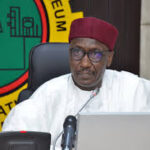
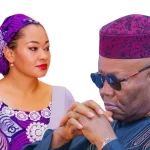



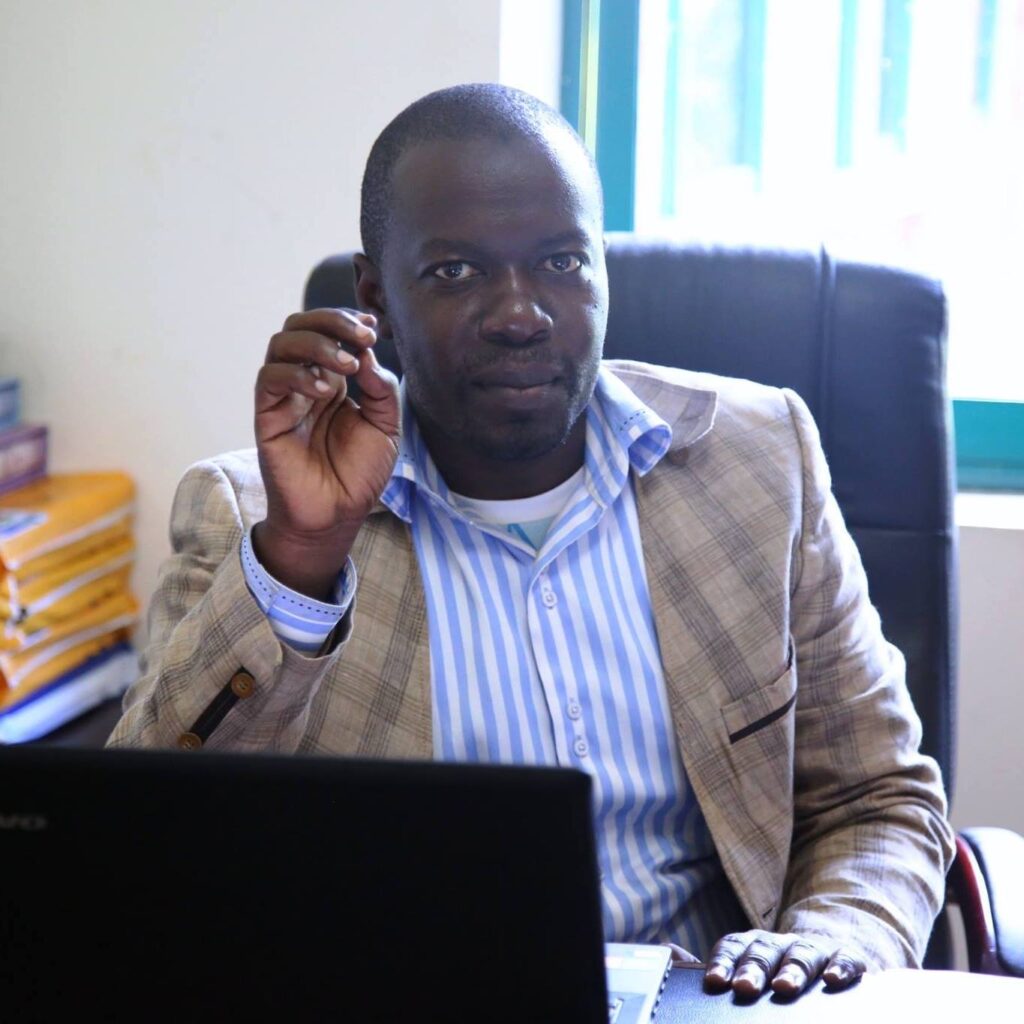
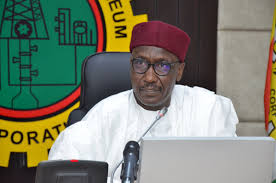
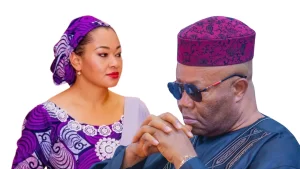
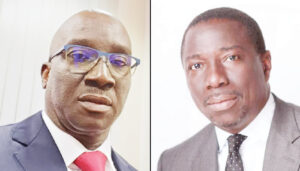

More Stories
Tinubu sacks NNPCL CEO Mele Kyari, replaces him with ex-Shell MD, Ojulari
VIDEO: ‘Akpabio, Yahaya Bello plotting to kill me,’ says Senator Natasha
Edo governorship election tribunal judgement leaks, shows split decision of judges